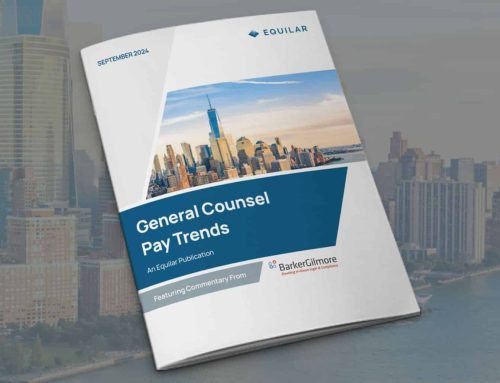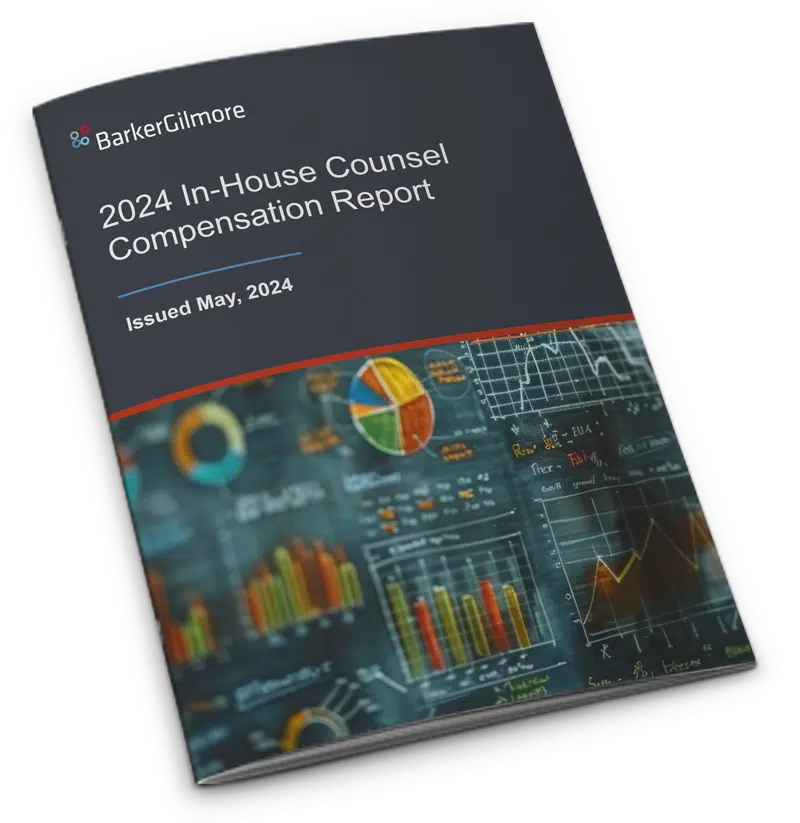Strategic Advisor and Coach David Yawman, former EVP, General Counsel, and Corporate Secretary of PepsiCo, Inc., is joined by Marjorie De La Cruz, SVP, Global Chief Compliance and Ethics Officer of PepsiCo, Inc., and Brian Nurse, EVP, Chief Legal Officer and Corporate Secretary of Cedar Fair Entertainment Company, to take a look at the factors involved when contemplating a career move.
Below are highlights from the webinar. To learn more, the video recording, slides, and podcast are available on this page.
Nearly every legal executive faces the decision to make a move or remain in place at an organization. Research indicates most individuals will need to make not one but between 10 and 30 decisions about their next step or changing roles. The criteria for these decisions involve a host of factors, reflecting both a broader career plan and one’s personal life in general, providing the impetus for a thoughtful approach to a big question.
It’s essential to be intentional about career direction.
Changing career direction does not necessarily mean moving to a new organization but can manifest as several options requiring careful analysis and consideration:
- Deciding to stay in one’s current role in the organization
- Taking another job within the same organization
- Accepting a position at a new organization
- Changing industries
- Changing professions
Instead of thinking creatively about and researching the options available, many career moves are triggered by a desire to leave an undesirable situation rather than pursue a specific position. Regardless of what is going on in one’s current role, attention should be focused on where one is headed to ensure long-term success versus achieving short-term relief.
“Be mindful to not let your emotions get the best of you too much. I say that because one of the biggest risks I’ve seen and witnessed, and I’ve been tempted to do it on my own from time to time, is to make a career move to escape from a less than ideal situation. Instead, be sure to pursue a situation that represents a well-thought-out career ideal.”
David Yawman
Refer to this comprehensive roadmap when thinking about making a move.
The following outlines a decision framework to consider when evaluating a current position or assessing a new career move.
1. Learning & Growth: Look at the opportunity to grow horizontally or vertically.
- Knowledge – potential to develop in broader/new substantive areas or deepen expertise
- Organizational Chart – room to move up
- Financial – capacity to increase compensation
“I think it’s really important to assess one’s growth in five-year increments, and not only from a legal and technical perspective. Consider how the knowledge can help you become a better leader within the law department and the organization, and, critically, to understand where there’s room to grow.”
Marjorie De La Cruz
2. Organizational: It’s essential to understand the dynamics of the new company.
- Industry – outlook for 5 to10 years
- Organization – market position, steady growth, upcoming reorganization, M&A, other changes
- Cultural – alignment, fit
“What has helped me to gain more insight about companies, particularly public companies, is reading their 10-K’s and annual reports. It gave me a sense as to where the company is, where they stand within their industry, and how they perceive their growth over the next 5 to 10 years, the sweet spot for my tenure.”
Brian Nurse
3. People: Does the organization as a whole support the development of its people?
- Organization Leadership ‑ belief and trust in them and their commitment to mentorship and support of leadership development
- Department Leadership – level of career and knowledge development support and willingness to be candid, empowering, and responsive
- Peers/Team – positive relationships and support
“I think it’s a huge factor to be in a department with leadership wanting to invest in you and to be with peers and colleagues you learn from, enjoy working with, and make you better. You can’t necessarily take this for granted.”
Marjorie De La Cruz
4. Personal: This can be the trickiest and most nuanced area and definitely personal.
- Life Matrix – family, lifestyle, geography, location, commute, remote flexibility, benefits, perks, other
- The Process – time, energy, and transition readiness. Evaluate how prepared you are for a major move.
“I call it the Life Matrix. It’s all those other decisions you have to make. You are flying your own plane, and only you can fly it.”
David Yawman
Managers need to monitor the talent in their departments.
Managers must realize their talented team members are also thinking about making career moves. To set the right tone, managers need to be responsive and practice the same actions they are looking for in a leader. This includes staying in touch with their reports to avoid surprise resignations. They need to understand what is important to team members and critical talent through individual discussions, “lunch with the leader,” review of 360 surveys with direct reports and their direct reports, and even gathering feedback from search firms to learn what they hear about the department.
David Yawman and the rest of BarkerGilmore’s team of esteemed professionals can help accelerate the initiatives you’re already pursuing or supplement your current strategic thinking to assist you in realizing your vision. Reach out if you or your organization may benefit from BarkerGilmore’s recruiting, leadership development and coaching, or legal and compliance department consulting services. Let BarkerGilmore help you build, develop, and optimize your legal and compliance departments.
Connect with a legal recruiting advisor
* indicates required fields







